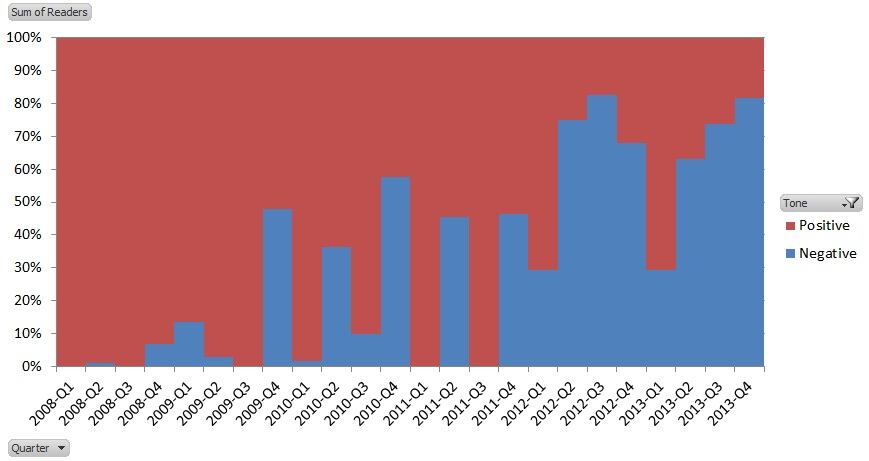If you look at the pyramid of scientific evidence, at the very top sits systematic reviews and meta-analyses. I even worked up the multi-color image above to make it obvious. So you’d think that, when faced with data from 70 – that’s a seven followed by a zero – randomized clinical trials (which sit the next tier down on that pretty pyramid) a journalist would sit up and take note.
Apparently not.
Negative news only, please
A search for news on Google about results of the meta-analysis published last week in the American Journal of Hypertension turns up next to nothing. The BBC didn’t cover it. CNN didn’t. The New York Times didn’t. The Guardian didn’t.
So it got me thinking about why this is so. The mainstream media was falling over itself to report on the results of that prostate cancer study last year, which was a prospective study of samples taken from men participating in the SELECT trial. A prospective study watches for changes in a select cohort, putting it at level three on our pyramid, below evidence from randomized clinical trials (and you could argue squashed flat under the weight of evidence from 70 RCTs).
The only report on omega-3s on CNN in 2014 is a story about the effects of high-dose omega-3s on serious brain trauma in a teen involved in a hit and run. It is undoubtedly a wonderful story, but it still is only a case report, putting it at level 6 on our pyramid. Level 6, but still enough to get CNN coverage. (It may be apples and oranges, but NutraIngredients-USA has published 11 articles about positive omega-3 studies since January 2014, and the vast majority being evidence from RCTs.)
Where once there was good news, now there is bad…
So what’s going on? The answer as to why the mainstream media didn’t pick up on the blood pressure meta-analysis seems to be that it was commissioned by the Global Organization for EPA and DHA Omega-3 (GOED), which, in the eyes of the journalists, diminishes the importance of the findings. Ignore that the meta-analysis represents the highest level of evidence. Ignore that it’s published in a peer-review journal.
Without doubt there has been a shift in the media coverage of omega-3s. GOED has been tracking the reporting on omega-3 in major US media outlets, and Adam Ismail, the organization’s executive director, shared the figure below with me. It shows that 80-90% of readers exposed to omega-3 in the mainstream media in the final three months of 2013 would have been getting negative messages.

Where once there was only good news about omega-3s, now the vast majority is bad, and news rooms across the nation now seem only interested in more negative news. Something smells fishy to me.
So is it enough for a journalist to not report on a study because of the industry funding? I read plenty of mainstream media articles about a new pharmaceutical passing phase 2 or 3 clinical trials, and they’re definitely funded by the big pharmaceutical companies. Pharma research funded by pharma = reliable? Nutrition research funded by an industry association = don’t touch?
I’d argue that consumers are not stupid. Disclose the source of the funding in the article and allow them to make up their own mind. Pretend the news doesn’t exist in the first place, and you’re heading back in time to 1984 and the Ministry of Truth.
Change the conversation…

I’ll disclose that I am an omega-3 convert, I take my supplements every day, but I’m most certainly not a blind believer. I have been reporting on omega-3 science for almost a decade, and the weight of the evidence is so overwhelmingly positive that it concerns me that people are now giving up their omega-3s. Twelve million consumers left the category last year in the US, according to GOED data.
With so many health benefits linked to omega-3, you have to wonder why mainstream journalists are not looking at the sector more for new science. And don’t forget the economic side to all this: omega-3 supplements could lead to almost $1 billion in health care cost savings a year for coronary heart disease alone, according to a report commissioned by CRN last year.
I know that the omega-3 industry is looking to change the conversation on omega-3s and it’s acting at the right time, and I’d recommend all stakeholders in the omega-3 space to think about how they would be involved in that.
For our part, we’ll continue to follow the science of omega-3s closely, both positive and negative, and I’d wager that the vast majority of that science will be positive.

